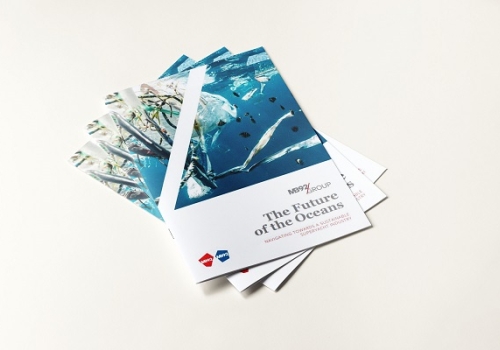MB92 Releases First Report on Superyacht Industry Sustainability

The superyacht industry is running out of time to course-correct on sustainability if it and its playground – the oceans – are to survive the century, a new report finds.
“The cost of inaction is evident and will be extremely dire for our oceans and industry,” said Pepe García-Aubert, president and CEO of the MB92 Group. “However, I am convinced that through a collaborative approach, our industry can rise to the challenge and achieve our goal of a sustainable future for superyachting.”
MB92, the world’s biggest superyacht refitting group, consulted key stakeholders from the industry and environmental NGOs for a broad discussion on the path ahead for the luxury yacht sector. Among the topics discussed were advances in new propulsion technology, life cycle assessment tools and international regulation.
Some of the report’s conclusions were that:
-
The next 10 years will be crucial for the oceans if they are to survive, and the superyacht industry must act now to change its ways.
-
Solutions need to take in to account the full lifecycle of a yacht, from construction, through maintenance and refitting to disposal.
-
Stakeholders can’t afford to work in isolation and must collaborate with their supply chains in order to guarantee a lower carbon footprint.
-
The development of lifecycle assessment tools is essential to help owners, builders and refitters know how to make yachts more sustainable.
-
Reducing emissions from propulsion, such as the development of hydrogen fuel cell technology, are important but so too is technology that saves energy.
-
The sector can learn from other industries that are further along the sustainability road. Just as Formula 1’s and Formula E’s development have trickled down to street cars, the superyacht industry’s innovations can do the same for the maritime sector.
MB92, which announced its own five-year sustainability plan in 2021, is committed to assuming a leading role in this urgent industry transformation. Its shipyards are among a handful in the world that can offer all boats the possibility to plug into onshore power, eliminating the need for the use of a boat’s diesel engines during the refitting process. In addition, all of the Barcelona shipyard’s energy comes from renewable sources. The Group’s policies to reduce emissions from paints are among the most advanced in the sector, hauling boats out of the water to avoid contaminating the sea and using technology to diffuse airborne paint particles.
José Caireta, managing partner of Squircle Capital, owner of a majority stake in MB92, commented: “As investors, our top priority is to tackle the sustainability challenge, whatever it takes, and we are proud to support MB92 on the path ahead. To us, sustainability is a never-ending journey and it is clear that the superyacht industry faces a turning point. We believe that MB92’s ambition and courage to lead this transformation process can make a real difference.”
García-Aubert said: “The next few years will be critical and will require many of us to move away from our comfort zones. At MB92, we have made our position very clear and are committed to moving forward. Despite these challenges, I am confident in our industry’s ability to adapt and excited by the opportunities and innovations this will generate.”
Joining Pepe García-Aubert in the discussion were Björn Berndt, head of project development at Lürssen, who is working on a project to develop a hydrogen fuel cell-powered yacht using methanol; Dr. Vienna Eleuteri, founder of the Water Revolution Foundation and developer of the Yacht Assessment Tool; Adrian Gahan, government affairs adviser at the Blue Marine Foundation and a former adviser to several Conservative MPs in the UK; Svein Stolpestad, vice president for strategy and sustainability at paintmaker Jotun which supplies about 25% of the paint used in the maritime sector; Stephanie Weel, head of operations at yacht management company Y.CO; and Albert Willemsen, environmental sustainability consultant at ICOMIA and an engineer with over 30 years’ experience working in the aerospace, automotive and nautical sectors.
You can read the full report here.


Post your comment
You cannot post comments until you have logged in.
Login to post a commentComments
No one has commented on this page yet.
RSS feed for comments on this page | RSS feed for all comments